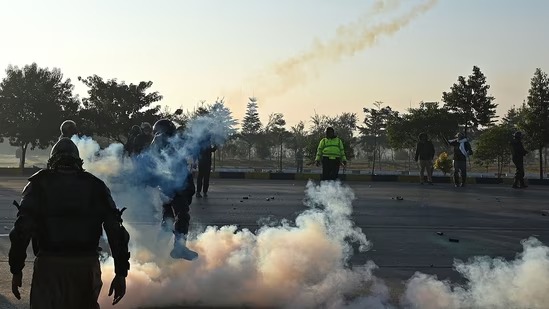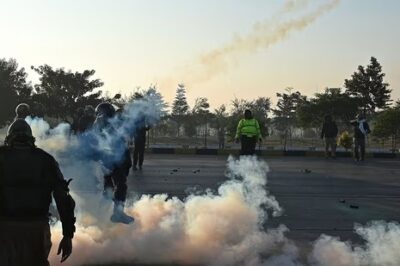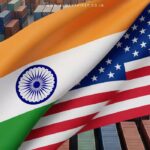
Islamabad has descended into chaos as thousands of supporters of former Pakistan Prime Minister Imran Khan staged fierce protests demanding his release. The agitation, which has intensified over the past days, turned violent, resulting in the death of four paramilitary troops. Police have resorted to tear gas shelling and other measures to control the increasingly agitated crowds.
Why Are Supporters Protesting?
Imran Khan, the leader of the Pakistan Tehreek-e-Insaf (PTI) party, has been detained on charges of corruption. His supporters argue that the charges are politically motivated, aimed at silencing one of the country’s most influential opposition leaders.
The protests erupted after Khan’s arrest, with his supporters rallying in large numbers across Islamabad and other parts of the country, demanding his immediate release.
Impact on Islamabad
City on Lockdown:
Islamabad has effectively been brought to a standstill, with major roads blocked by protestors. Businesses, educational institutions, and government offices remain shut, creating widespread disruption.
Security Measures:
Authorities have deployed paramilitary forces and riot police to maintain order. Checkpoints have been set up across the city to prevent the protests from spreading further.
Casualties and Injuries:
The violence has resulted in the death of four paramilitary troops and several injuries on both sides. Tear gas shelling and baton charges have been employed to disperse the crowds, further escalating tensions.
Political Reactions
Imran Khan’s PTI Party:
PTI leaders have condemned the government’s actions, calling them an attack on democracy and freedom of expression. They have vowed to continue the protests until Khan is released.
Government’s Stance:
Officials argue that the law must take its course, citing the corruption allegations as valid and necessary for accountability. They have also warned of strict action against those involved in violence.
International Reactions:
The turmoil has drawn attention from global observers, with concerns raised about Pakistan’s political instability and its impact on regional security.
Photos of the Protests
Images emerging from Islamabad paint a grim picture of the ongoing unrest:
Protestors clashing with police, hurling stones, and chanting slogans in support of Khan.
Law enforcement using tear gas to disperse crowds, with smoke enveloping major streets.
Paramilitary forces guarding key government buildings to prevent vandalism.
These photos underscore the scale and intensity of the protests, revealing the deep divide in Pakistan’s political landscape.
Broader Implications
Political Instability:
The unrest highlights Pakistan’s ongoing struggle with political polarization, which could further weaken its fragile democratic institutions.
Economic Impact:
Prolonged protests are disrupting business activities and deterring foreign investment, exacerbating the country’s already dire economic situation.
Public Safety Concerns:
The violence has heightened fears among residents, with many avoiding public spaces amid the ongoing unrest.
What Lies Ahead?
The situation remains tense, with no clear resolution in sight. The following steps are critical for de-escalation:
Dialogue: The government and PTI leaders must engage in talks to find a peaceful solution.
Judicial Transparency: Ensuring a fair and transparent trial for Imran Khan could help address concerns over political bias.
Law and Order: Authorities must strike a balance between maintaining public safety and respecting the right to peaceful protest.
Conclusion
Islamabad is under siege as Imran Khan’s supporters continue to demand his release, highlighting the deep political divisions in Pakistan. With escalating violence and no immediate resolution in sight, the unrest poses significant challenges to the country’s stability. A peaceful and transparent resolution is essential to prevent further chaos and restore normalcy.








































Leave a Reply